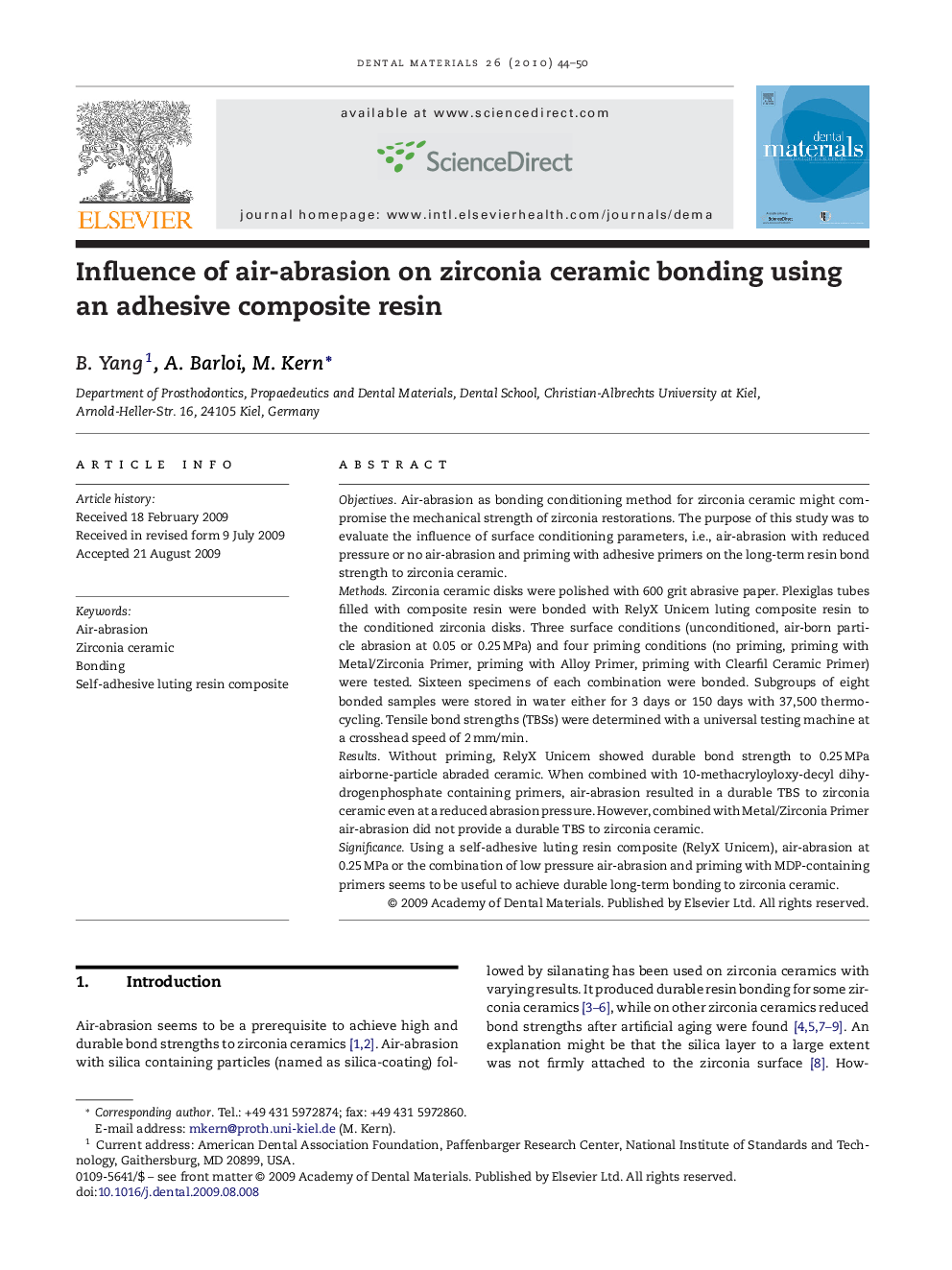| Article ID | Journal | Published Year | Pages | File Type |
|---|---|---|---|---|
| 1422376 | Dental Materials | 2010 | 7 Pages |
ObjectivesAir-abrasion as bonding conditioning method for zirconia ceramic might compromise the mechanical strength of zirconia restorations. The purpose of this study was to evaluate the influence of surface conditioning parameters, i.e., air-abrasion with reduced pressure or no air-abrasion and priming with adhesive primers on the long-term resin bond strength to zirconia ceramic.MethodsZirconia ceramic disks were polished with 600 grit abrasive paper. Plexiglas tubes filled with composite resin were bonded with RelyX Unicem luting composite resin to the conditioned zirconia disks. Three surface conditions (unconditioned, air-born particle abrasion at 0.05 or 0.25 MPa) and four priming conditions (no priming, priming with Metal/Zirconia Primer, priming with Alloy Primer, priming with Clearfil Ceramic Primer) were tested. Sixteen specimens of each combination were bonded. Subgroups of eight bonded samples were stored in water either for 3 days or 150 days with 37,500 thermocycling. Tensile bond strengths (TBSs) were determined with a universal testing machine at a crosshead speed of 2 mm/min.ResultsWithout priming, RelyX Unicem showed durable bond strength to 0.25 MPa airborne-particle abraded ceramic. When combined with 10-methacryloyloxy-decyl dihydrogenphosphate containing primers, air-abrasion resulted in a durable TBS to zirconia ceramic even at a reduced abrasion pressure. However, combined with Metal/Zirconia Primer air-abrasion did not provide a durable TBS to zirconia ceramic.SignificanceUsing a self-adhesive luting resin composite (RelyX Unicem), air-abrasion at 0.25 MPa or the combination of low pressure air-abrasion and priming with MDP-containing primers seems to be useful to achieve durable long-term bonding to zirconia ceramic.
